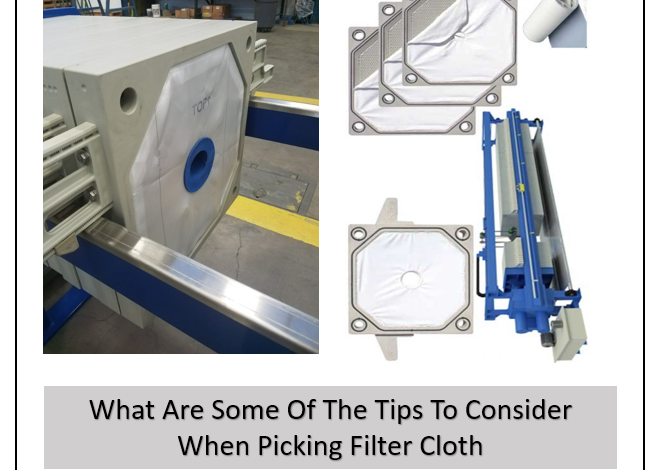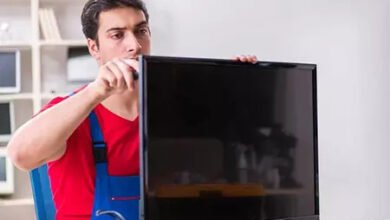What Are Some Of The Factors You’ll Consider When Choosing A Filter Cloth?

How To Choose The Right Filter Cloth For Your Needs?
No matter what you’re filtering, there are some key factors you should consider before deciding which filter cloth to use, including fabric weight, stitch count, and more. Check out this handy guide to learn how to choose the right filter cloth for your needs!
Durability
How long a filter cloth can last during normal use depends on several factors, including its construction, thickness and materials. For example, the coarse-weave cloth is more durable than fine-weave but usually costs more. Check manufacturers’ literature for specific recommendations about. How long each type of filter cloth will work. Well before it needs to replaced. If a manufacturer doesn’t offer suggestions, ask. A reputable filter press manufacturer in Gujarat should know when it’s time to replace their filter cloths. At minimum, a new one called for. When you can no longer pass your maximum solids level without clogging or compromising your water quality. Some types of filter cloth also have warranties. That specify when they need to replaced.
Strength
The filter cloth is one of, if not THE most important component of an automatic filter press. Its function is simple: retain solids from contaminating. Your product or runoff and allow clean water to pass through and collected. This accomplished by choosing a material that balances. The retention rate with its ability to filter out contaminants. What do you want to filter? How much of it do you want to filter? What are you filtering it in? Do you need something specific like arsenic resistance or high-temperature tolerance? These are all questions that should answered before considering. Which filter clothes are right for your needs. Filter cloth selection can make or break your filtration operation, so choose wisely!
Type Of Material
Filter cloths, or filter media, are one of two main components that go into an automatic filter press. The second is frame design. Filter cloths typically made from either plastic or woven materials. Can come in a variety of shapes and sizes based on how they used. Selecting which material is right for your filtration needs involves considering several factors including temperature, pressure and particle size. Filter cloth selection depends largely on what you’re filtering, but here are some general guidelines.
What is filter Cloth?
Pre-filter filter cloth: These filter presses use multiple filter sheets to remove large particles before they reach finer filters further downstream. If you have high levels of large particles such as rust or metal shavings in your water source, a pre-filter filter sheet may be necessary to prevent these contaminants from reaching other filters. In addition, if you need to deal with higher temperatures than normal—like when dealing with hot liquids—then selecting a high-temperature pre-filter may be useful as well. You should also consider using special coatings on pre-filters depending on what you’re filtering because larger particles will cause more wear and tear than smaller ones do.
Application
Filter cloths widely used in water treatment because. They can remove many types of contaminants and odours. When choosing a filter cloth, you’ll need to take into account several factors, including your budget, available space and location. Automatic filter press are also known as continuous filter presses or drum filters because they are similar in design to drum-type washing machines but with additional components designed specifically for high-capacity filtering. High-end models have rotary lifts and computer controls that monitor flow rates, pressure settings and other critical settings. Whether you’re looking for a top-of-the-line option or something more affordable, it’s important to find one with features that meet your needs. The filter press manufacturer in Gujarat has several products on display at its showroom, which is located near Ahmedabad International Airport.
Size
In terms of size, filter cloths can be as large as several feet in diameter, but it’s much more common to see filters that are just a few inches across. When choosing a filter cloth, you’ll want to consider factors like how much liquid. You filtering and what kind of pressure applied. If you have high-pressure equipment—like an automatic filter press—you may need a stronger material. Since larger filters subject to quite as much pressure and designed primarily for water filtration. They don’t require such durable materials. If you’re not sure which filter cloth is right for your needs, consult with a filter press manufacturer in Gujarat. They’ll help you determine which filter cloth best fits your application.
What About Filter Press Manufacturer?
In addition to taking these considerations into account, you should also look at The thickness of each layer: The layers on top are often thinner than those underneath because of how long they sit under pressure during production. Thickness is especially important if you plan on putting two layers together for added strength or protection against punctures. However, thinner layers tend to wear out faster so check how long each layer will last before purchasing them. Read more about quickbook.



